Russia-China-Afghanistan[Over] 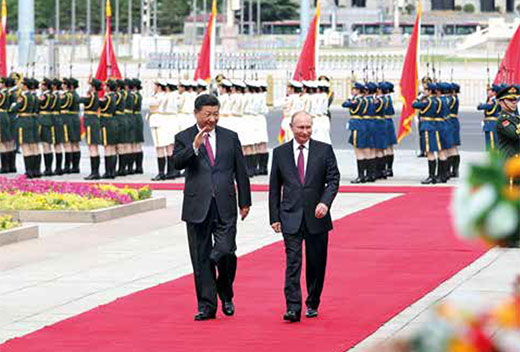 By Eugene KOGAN, Tbilisi-based defence and security expert By Eugene KOGAN, Tbilisi-based defence and security expert
Moscow and Beijing are likely to discover that their initial joy over the US withdrawal from Afghanistan may be premature. Afghanistan under the Taliban remains divided, insecure and uncertain about its current and future path. Without stability and security, neither Beijing nor Moscow will provide economic assistance while the international community will continue to shun Afghanistan.
Russia’s Presidential Envoy to Afghanistan, Zamir Kabulov, noted that “The Taliban were easier to negotiate with than the old “puppet government” of the exiled President Ashraf Ghani.” The latter was seen by, and from Moscow, as a puppet of the West and contacts that Russia maintained with Hamid Karzai’s successor were either downgraded or revised. At the same time, contacts between Russia and the Taliban only increased. With the West’s departure, Moscow is seizing up the opportunity indirectly to recognise the authority of the Taliban, which it officially designated as a terrorist organisation back in 2003 though without burning its bridges with the militant group. READ MORE.
Risks and Opportunities of the Emerging South Caucasus Regional Order[Over]  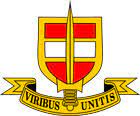 Policy Recommendations from the 21st workshop of RSSC SG/PfP Consortium Policy Recommendations from the 21st workshop of RSSC SG/PfP Consortium
The Regional Stability in the South Caucasus Study Group (RSSC SG) was proud to resume its activities in a face-to face format in Rome, 7-10 September 2021. On that occasion, the Study Group discussed and subsequently agreed on a number of policy recommendations.
The second Karabakh war was the catalyst for massive changes in the South Caucasus. Certainly, the new territorial realities fit better the internationally recognized territories of both countries, but important challenges remain, making it important for the RSSC SG to meet to spur thinking on the way forward. The conflict was also an opportunity for other regional actors. Georgia deployed uncommon diplomacy and peace-making skills in the aftermath of the combat phase between Armenia and Azerbaijan. While Georgia demonstrated its ability at being an effective bridge between the two belligerents, Russia established itself as the essential arbiter and guarantor of a fragile ceasefire, and of purveyor of security for new lines of demarcation between Armenia and Azerbaijan. Turkey has not waited and sided with Azerbaijan in achieving and securing the new territorial realities. READ MORE
Why non-aligned Azerbaijan signed an alliance declaration with Russia[Over]
 By Fuad SHAHBAZOV, Baku-based independent regional security and defence analyst By Fuad SHAHBAZOV, Baku-based independent regional security and defence analyst
On February 22, the President of Azerbaijan Ilham Aliyev made an paid official trip visit to Moscow to discuss and sign a new declaration on allied cooperation with Russia. The visit came just a day after President Putin's infamous decision to recognize the independence of the so-called Donetsk People's Republic and Luhansk Peoples' Republic in Eastern Ukraine. President Vladimir Putin’s “unexpected” decision deteriorated relations with Ukraine, even more and was followed by the new round of economic sanctions imposed by the U.S and the EU.
President Aliyev's visit to Moscow triggered debates in Azerbaijan and Russia, respectively, on whether the main text of the declaration was pre-negotiated between the two leaders, or prepared amid the escalation around Ukraine. READ MORE
War and Peace in the South Caucasus: Putin Style[Over]  By Alan Whitehorn, Professor Emeritus in Political Science, The Royal Military College of Canada By Alan Whitehorn, Professor Emeritus in Political Science, The Royal Military College of Canada
Without a doubt, Russia’s leader Vladimir Putin is the greatest factor in the risk of war between Russia and Ukraine. Yet paradoxically, Putin is perhaps the best hope for peace in the South Caucasus, at least as far as Azerbaijan and Armenia are concerned. The Georgian situation is, however, another matter. But one should take one step at a time in this exceptionally dangerous and conflict-prone region.
The recent 2020 Karabakh War between Azerbaijan and Armenia was, in effect, a continuation of the bitter 1990s ethno-religious territorial war over Nagorno-Karabakh (Artsakh) that emerged between the two newly independent states in the midst of the break-up of the Soviet Union. The 1990s conflict produced thousands of casualties and hundreds of thousands of displaced civilian ethnic minority refugees. It was a humanitarian catastrophe for families on both sides of the border. READ MORE
- February 28, 2022 20:03PM
Assessing the Urban Terrorism Strategy of the Kurdistan Workers' Party in Turkey[Over]
 By Fuad SHAHBAZOV, Baku-based independent regional security and defence analyst By Fuad SHAHBAZOV, Baku-based independent regional security and defence analyst
Since its emergence in the 1980s, the Kurdistan Workers' Party (PKK) has been a significant source of concern to the state of Turkey. With the escalation of conflict between the Turkish state and the ethnic Kurdish community in the 1990s, the level of violence explicitly increased, and the civilian death toll rose to its highest point. Though the PKK could not ensure absolute authority in large, predominantly Kurdish provinces in the southeast, it gradually shifted to a new strategy —urban violence— to undermine the Turkish state's authority in Kurdish regions.
According to theories of violent resistance, violence is the only practical and productive tool of mass mobilisation of ethnic insurgencies against political systems. In the case of Kurdish nationalism in Turkey, many scholars argue that Turkey's policy of ethnic nationalism has had a decisive role in shaping Kurdish ethnic nationalism throughout these years. READ MORE
- February 28, 2022 19:44PM
Successful Border Demarcation and Delimitation Process Crucial for a Final Peace Agreement [Over]
 By Fuad Shahbazov, Baku-based independent regional security and defence analyst By Fuad Shahbazov, Baku-based independent regional security and defence analyst
The current border tensions between Azerbaijan and Armenia are not the first and likely not the last. Given this, a successful border demarcation/delimitation process could be a crucial point in paving the way for a final peace agreement between the two adversaries. Therefore, the resumption of direct peace talks is the only rational option.
Last month, shortly after the first anniversary of the 44-day Karabakh war between Azerbaijan and Armenia, saw a new phase of violent hostilities, and the fighting was far from conventional. Deadly skirmishes occurred on the Azerbaijan–Armenia's international border, in a place named Giziltapa (Tsitserrnakar) near Syunik province. According to the Ministry of Defence of Azerbaijan, the tensions flared up due to the Armenian Armed Forces' intensive artillery fires at the positions of the Azerbaijani Armed Forces. In response, the Armenian Ministry of Defence accused the Azerbaijani side of provocation, violating international borders, and spreading disinformation regarding the skirmishes. READ MORE
Will Turkey Gamble with Ukraine against Russia?[Over]  By Yeghia TASHJIAN, Beirut-based regional analyst and researcher, columnist, "The Armenian Weekly” By Yeghia TASHJIAN, Beirut-based regional analyst and researcher, columnist, "The Armenian Weekly”
In the past few years, Turkey has been gradually increasing its influence in Ukraine through trade and military cooperation amid escalating tensions between Moscow and Kyiv, challenging Moscow’s standing in the Black Sea region. The strategic cooperation between Ankara and Kyiv is not limited to political statements, but rather encompasses other important fields, such as the economy, security and defence industries. Moreover, relations between the two countries gained further impetus with Russia’s unification of Crimea in 2014 and reached their peak during the administration of Ukrainian President Volodymyr Zelensky, who assumed office in 2019. READ MORE
What's behind the Fresh Tensions between Iran and Azerbaijan?[Over]
 By Fuad Shahbazov, Baku-based independent regional security and defence analyst By Fuad Shahbazov, Baku-based independent regional security and defence analyst
In the period immediately after the 44-day Karabakh war, Baku-Tehran relations remained on the level of pragmatic co-operation, until the new conservative political establishment ascended to power in Iran. Since then, Tehran’s rhetoric against Azerbaijan has shifted from that of “partnership” to open threats that explicitly neglect the partnership atmosphere. Relations between Baku and Tehran have always been unstable, particularly at the beginning of the 2000s. However, they rekindled when both countries became engaged in regional infrastructure and transit projects. READ MORE
- December 15, 2021 09:08AM
Delimitation, Demarcation and Cartographic Manipulation in the Wake of the 44 Days War[Over] 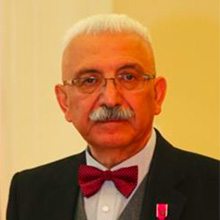 By Hayk KOTANJIAN, Lieutenant General (Ret.), D.Sc., Professor of Political Science of the RA, RF, USA (state studies-strategic security studies), Full Member of the Academy of Military Sciences of the RF By Hayk KOTANJIAN, Lieutenant General (Ret.), D.Sc., Professor of Political Science of the RA, RF, USA (state studies-strategic security studies), Full Member of the Academy of Military Sciences of the RF
In the wake of the 44-day war in 2020, an unprecedented escalation of the process of delimitation and demarcation of the Armenian-Azerbaijani borders has been launched. This was done contrary to the principles and procedure for border delimitation and demarcation recommended by the OSCE Secretariat. The unparalleled pressure on the Armenian population from Karabakh was accompanied by subsequent attempts to undermine the settlement process under the auspices of the OSCE Minsk Group co-chairmanship. Among the arguments substantiating claims to include Nagorno-Karabakh in Azerbaijan, Baku authorities refer to the Azerbaijani-language toponymy, which allegedly has a long history. READ MORE
Assessing Armenians’ Geopolitical Situation [Over]  By Alan Whitehorn, Professor Emeritus in Political Science, The Royal Military College of Canada By Alan Whitehorn, Professor Emeritus in Political Science, The Royal Military College of Canada
Armenia is at yet another critical time. The war losses were substantial and impacted greatly. Violent Azerbaijani-Armenian border incidents continue, with property damage, military personnel injuries and deaths. The risks ahead are significant. Accordingly, it is crucial to assess the geopolitical situation that confronts Armenia, commencing first with key problems and challenges and then exploring some opportunities.
Amongst the pressing issues is the fact that demographically Armenia has far less manpower than Azerbaijan, even if women were conscripted too. Armenia’s population has been declining significantly due to outmigration and this pattern has been accelerating after the recent Karabakh war and various phases of the Covid pandemic. An army historically based on conscription needs to address its critical declining population base. READ MORE
Military Aerospace Expertise and Exports from Israel[Over] 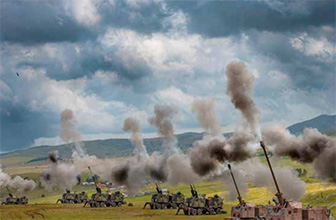 By Eugene Kogan, Tbilisi-based defence and security expert By Eugene Kogan, Tbilisi-based defence and security expert
Local domestic military aerospace expertise has been honed over a period of almost 60 years. Israel’s procurement of US-built fighter aircraft and Israeli technicians and aeronautical engineers developing subsystems and avionics for the jets has enhanced their skills and expertise.
Rafael Advanced Defence Systems’ cooperation with Raytheon has taken military aerospace expertise to the next level. The triple combination of buying from the United States, developing subsystems locally, and teaming up with the US has contributed to successful arms exports from Israel. The Ministry of Defence International Defence Cooperation Authority (known as SIBAT) realised in November 2019 that the international arms market was undergoing serious changes and certain adjustments would be needed in order to remain competitive and increase the market share of Israeli defence companies. READ MORE.
Armenia’s Five Stages of Grief[Over]  By Benyamin Poghosyan, PhD, Chairman, Center for Political and Economic Strategic Studies By Benyamin Poghosyan, PhD, Chairman, Center for Political and Economic Strategic Studies
Todd Fabacher, Co-Founder, Distrikt Foundation, Gyumri
Countries, just like people, will experience the five stages of grief after a significant loss. 2020 was a challenging year for all nations. COVID – 19 pandemic and economic downturn have negatively impacted almost everyone. It was an exceptionally difficult year for Armenia because, besides the pandemic, defeat in the war launched by Azerbaijan against the unrecognized Nagorno Karabakh (Artsakh) Republic in autumn 2020 resulted in significant material and human losses. In the first half of 2021, Armenia grasped domestic political instability, triggering an early parliamentary election in June 2021. READ MORE
- September 4, 2021 06:14AM
Revolutionizing the Turkish Army under Erdogan[Over]  By Yeghia TASHJIAN, Beirut-based regional analyst and researcher, columnist, "The Armenian Weekly” By Yeghia TASHJIAN, Beirut-based regional analyst and researcher, columnist, "The Armenian Weekly”
Back in July, Rich Outzen published a policy paper “Deals, Drones and National Will: The New Era in Turkish Power Projection” in the Washington Institute for Near East Policy highlighting the new strategy of the Turkish Armed Forces, the development of the arms industry and how Ankara is deploying hard power in the region. According to Outzen, the integration of drones, electronic warfare, manoeuvre and precision strike employed by Turkey across technologies and domains (manned/unmanned and ground/air/naval) have been characterized as a new phase of a revolution in military affairs (RMA). An RMA is a hypothesis in military theory about the future of warfare, often connected to technological and organizational recommendations for radical military reform. An RMA occurs when new tactics, technologies and operational concepts enable dramatic increases in ineffectiveness to provide early innovators a marked advantage and force others to adopt the same methods. READ MORE
- September 4, 2021 06:12AM
Assessing the Current Situation in the South Caucasus[Over]  By Alan Whitehorn, Professor Emeritus in Political Science, The Royal Military College of Canada By Alan Whitehorn, Professor Emeritus in Political Science, The Royal Military College of Canada
Despite signing the November 9, 2020 ceasefire, Azerbaijan and Armenia have not been able to agree on an actual firm ceasefire. There are too many border incursions and military incidents, despite the existence of decades-old soviet boundaries between republics that were firmly regulated in the former Soviet Union. Peacekeepers are too few and not located in enough areas to address all of the border incidents. READ MORE
The Causes of the Third Karabakh War[Over]  By Alan Whitehorn, Professor Emeritus in Political Science, The Royal Military College of Canada By Alan Whitehorn, Professor Emeritus in Political Science, The Royal Military College of Canada
Just when you think the war is over, it actually is not. Multi-generational families are haunted by the dead. There are too many displaced persons, multitudes of refugee children uprooted from schools and homes, and continued mistreatment of POWs. The major economic dislocations and massive war debts are part of the ongoing and mounting negative tally. The competing legal terms national self-determination vs territorial integrity are brandished about in fervent ideological battles that further entrench the hardened positions of two combatant sides. READ MORE
Polish-Romanian Defence and Security Policy[Over]  By Eugene Kogan, Tbilisi-based defence and security expert By Eugene Kogan, Tbilisi-based defence and security expert
A joint initiative of Romanian President Klaus Iohannis and Polish President Andrzej Duda, known as the ‘Bucharest Nine', was launched in November 2015 and laid a foundation for foreign and security policy meetings and discussions. As the next step, the Warsaw NATO Summit in July 2016 accelerated military-to-military cooperation. As a result, the initiative brought Romanian troops to Poland and Polish troops to Romania on a rotational basis in March 2017. In addition, their pivotal positions in the east and in the south of NATO’s reach have further increased their cooperation in a variety of defence and security programmes. READ MORE.
Border Incident Forces Armenians to Rethink Relationship with Russia[Over]  By Benyamin Poghosyan, PhD, Chairman, Center for Political and Economic Strategic Studies By Benyamin Poghosyan, PhD, Chairman, Center for Political and Economic Strategic Studies
The Azerbaijani military incursion into Armenian territory may have significant geopolitical implications. The muted reaction of the CSTO and Russia triggered another wave of anti-Russian sentiments in Armenia.
On 12 May 2021, news coming from the Syunik region shocked Armenian society. Several hundred Azerbaijani soldiers had crossed the Armenian border and penetrated up to 3.5 km into Armenian territory near the "Black Lake". The Armenian government did not confirm this immediately, however, late in the evening on the same day, Armenia’s Security Council convened in an extraordinary session, and the prime minister declared that Azerbaijani Armed forces had entered Armenian territory. READ MORE
The Karabakh War: The Lessons of Defeat in the Cyberspace[Over] 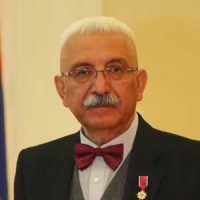 By Lieutenant-General (Ret.) Hayk S. Kotanjian, PhD, Professor Strategic Security Studies By Lieutenant-General (Ret.) Hayk S. Kotanjian, PhD, Professor Strategic Security Studies
Reflecting on the lessons of the military aggression of Turkey and Azerbaijan against the Nagorno-Karabakh Republic and the Republic of Armenia, strategic analysts of the security institutions and processes continue to monitor the dynamics of the peace-war around Karabakh in the context of the world order transformation. Russian President Vladimir Putin at the session of the Russian Security Council of March 26, 2021, emphasizing the exceptional role of cybersecurity, pointed out the strategic priority of the development of the cyberspace resources management system. In general, this coincides with the assessments of the special significance of this security sector, voiced recently by the US President Joe Biden and Chinese President Xi Jinping. READ MORE
Peace and Reform: Europe’s Role in the Post-Karabakh War Caucasus[Over]  By Anna Ohanyan, PhD, non-resident senior scholar in the Russia and Eurasia Program of Carnegie By Anna Ohanyan, PhD, non-resident senior scholar in the Russia and Eurasia Program of Carnegie
Europe has a role to play in rebuilding the South Caucasus and promoting a sustainable future. One important dividend would be democracy promotion in the region. A Russian-enforced peace could be remarkably conducive to that end.
Since the Soviet collapse, Europe and Russia have remained unable to construct a common framework for security cooperation. The Kremlin has consistently pushed for grand security bargains to assert its privileged spheres of influence over swathes of the Eurasian landmass. In contrast, Europe’s normative preferences for a market economy and liberal democracy have favoured a very different approach, one based on rules and rights, in order to advance security and order in the emergent post-Soviet space. READ MORE
Are We Seeing a New National Strategy on Human Rights Emerging in Uzbekistan under President Mirziyoyev?[Over]  Embassy of the Republic of Uzbekistan in the Kingdom of Belgium Embassy of the Republic of Uzbekistan in the Kingdom of Belgium
On June 22, 2020, the President of the Republic of Uzbekistan, Shavkat Mirziyoyev, signed a Decree on Approval of the National Strategy of the Republic of Uzbekistan on Human Rights. Much has been said about Uzbekistan’s efforts to reform and modernize multiple aspects of society and economy since Mirziyoyev became president in 2016. Human rights are a core area of national reform, in this respect. It should be noted from the outset that discussions around this subject in Uzbekistan during the early years of the country’s independence have not always focused on the most celebrated factors.
READ MORE
Armenia’s Endgame in the Aftermath of the 2020 Karabakh War Needs to be Clarified[Over]  By Benyamin Poghosyan, PhD, Chairman, Center for Political and Economic Strategic Studies By Benyamin Poghosyan, PhD, Chairman, Center for Political and Economic Strategic Studies
Still recovering from the war, it is not yet clear what Armenia's strategy is for Nagorno Karabakh. Without a coherent and consistent policy from the Armenian government, Armenia may lose what it retains of the enclave.
Almost four and half months after the end of the 2020 Karabakh war, Armenia has not yet recovered. Society is grappling with lingering questions about the reasons for the staggering defeat. The fate of the remaining Armenian prisoners of war in Azerbaijan, whose POW status Azerbaijan refuses to accept, is a top priority. The ongoing de facto border demarcation process in the Syunik region, and looming demarcations in other regions, have put additional stress on society. The current political crisis and upcoming June 20, 2021, snap parliamentary elections do not help restore stability. Different political forces actively discuss possible changes in the electoral code, and even the possibility of making some amendments to the Constitution before the elections. However, apart from the daily ups and downs of politics, Armenia faces a bigger task: that of clarifying its stance on fundamental issues regarding the new status quo in Nagorno-Karabakh. READ MORE
Potential Stress Points in the Nagorno-Karabakh Ceasefire Agreement [Over]  By Alan Whitehorn, Professor Emeritus in Political Science, The Royal Military College of Canada By Alan Whitehorn, Professor Emeritus in Political Science, The Royal Military College of Canada
There are number of potential stress points in the ceasefire agreement signed by Russia, Azerbaijan and Armenia, but also agreed to by the president of Nagorno Karabakh on November 9th, 2020. It is a document that was signed under the duress of rapidly deteriorating war conditions for Armenians. Few within Armenia were consulted apart from some senior military leaders. It has not been ratified by the Armenian Parliament. Public disapproval has been extensive READ MORE.
In 2021 Armenia Can Only Wait and Watch whilst Others Decide the Fate of Karabakh[Over]  By Benyamin Poghosyan, PhD, Chairman, Center for Political and Economic Strategic Studies By Benyamin Poghosyan, PhD, Chairman, Center for Political and Economic Strategic Studies
Since the end of the second Karabakh war in November 2020, Armenian, Azerbaijani, and international pundits have published many opinions and assessments focusing on the war, its causes and consequences, and the decisive victory of Azerbaijan. The strategic blunders of the Pashinyan government, the Russia – Turkey deal, and the aloofness of the US, are among the hotly debated issues about what contributed to the launch of the war, and the capitulation of Armenia. Some experts seek to forecast the distant future (5-10 years). They argue that Armenia will accept its defeat, will forget about territories taken by Azerbaijan during the war, and will seek to get material benefits through establishing economic cooperation with Baku and Ankara. READ MORE
- February 25, 2021 07:32AM
Tactical Reasons Behind Military Breakthrough in Karabakh Conflict[Over]  By Fuad Shahbazov, Baku-based independent regional security and defence analyst By Fuad Shahbazov, Baku-based independent regional security and defence analyst
Azerbaijan and Armenia have been locked in fierce fighting in Karabakh since September 27. Unlike in most previous clashes over this Armenian-occupied Azerbaijani territory, the present conflict has involved heavy and sophisticated weaponry wielded by both sides, but especially Azerbaijan’s Armed Forces. And while the ongoing violence is essentially a conventional war fought by two professional armies, the presence of new generation, hi-tech weaponry has sharply increased its destructive potential. READ MORE
- December 22, 2020 20:28PM
Why Did the Armenia-Azerbaijan Peace Process just Fail?[Over]  By Elkhan Nuriyev, PhD, Eastern Europe-Global Area (EEGA) fellow at Leipzig University By Elkhan Nuriyev, PhD, Eastern Europe-Global Area (EEGA) fellow at Leipzig University
The ongoing escalation of Armenian-Azerbaijani conflict in Nagorno-Karabakh is a most serious and significant one - just not surprising at all. This is mainly due to the lack of tangible progress in the OSCE Minsk Group-led peace talks between the two sides, which have been held since 1994. The absence of substantive negotiations over de-occupation of Azerbaijani territories, return of internally-displaced persons to the regions of their origin, the unblocking of transport, economic and other communications with Armenia has fueled strong skepticism about peaceful conflict resolution. Back in the summer it was evident that the smell of a new war had already hung heavily over the conflict-torn area. READ MORE
- December 16, 2020 05:54AM
|
|